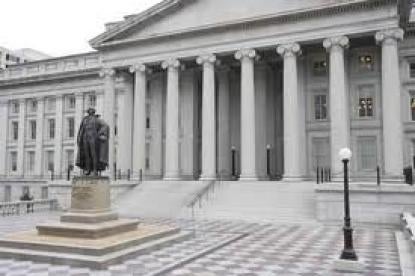On January 11, 2022, the Office of Foreign Assets Control (OFAC) of the U.S. Department of the Treasury announced a settlement with Sojitz (Hong Kong) Limited (Sojitz HK), a Chinese subsidiary of Sojitz Corporation, headquartered in Japan, over violations of the Iranian Transactions and Sanctions Regulations (ITSR). Sojitz HK agreed to pay $5,228,298 to settle civil liability for purchasing Iranian-origin goods through U.S. dollar transactions. Notwithstanding evidence that employees of Sojitz HK sought to evade sanctions compliance controls, OFAC deemed the apparent violations “non-egregious” because of Sojitz’s self-disclosure, cooperation, and remediation.[1]
The apparent violations occurred from 2016 to 2018 when employees at Sojitz HK—in breach of company policies—purchased on Sojitz HK’s behalf Iranian-origin high density polyethylene resin (HDPE) from a supplier in Thailand, and wired the purchase price to the supplier in U.S. dollars when the supplier shipped the HDPE to ultimate Chinese buyers. Sojitz HK made 60 separate U.S. dollar payments from its bank in Hong Kong to the supplier’s banks in Thailand, totaling $75,603,411, and causing those payments to be processed through U.S. correspondent banks. At least one mid-level manager at Sojitz HK knew that the HDPE trading was related to Iran, and other involved employees took steps to conceal the Iranian-origin of the HDPE from relevant transactional documents. OFAC’s enforcement release notes these facts constitute aggravating factors.
The settlement is notable in that it highlights the continued risk for non-U.S. companies of getting into OFAC’s cross-hairs when they engage in U.S. dollar transactions. In this case, the apparent violator was neither a U.S. entity nor a subsidiary of a U.S. entity, its conduct involved purchases of Iranian-origin goods from a supplier in Thailand, and its payments originated from a bank in Hong Kong. However, because the bank transactions were in U.S. dollars, they were settled through U.S. correspondent banks of the Hong Kong and Thai banks, giving OFAC jurisdiction under the ITSR. OFAC concluded that the apparent violations caused U.S. financial institutions to engage in unauthorized financial transactions in violation of the ITSR.[2]
The settlement also highlights the ostensible benefits of self-disclosure, cooperation, and remediation. Although the penalty of more than $5 million is hardly insignificant, the value of the transactions exceeded $75 million, and the maximum possible civil penalty was $151,545,831. Moreover, notwithstanding that some of the conduct noted above constituted what OFAC deemed to be aggravating factors, OFAC identified a host of mitigating factors that led OFAC to ultimately determine that this was a non-egregious case—a critical designation in OFAC’s matrix for penalty analysis. These mitigating factors included:
-
Sojitz HK voluntarily self-disclosed the apparent violations to OFAC;
-
Sojitz HK cooperated in OFAC’s investigation by providing “detailed” and “well-organized” information;
-
Sojitz HK’s compliance team had advised the relevant employees that U.S. dollar transactions in connection with Iran-related business transactions were prohibited;
-
Sojitz HK’s senior management and compliance personal were not aware of the Iranian origin of the HDPE because of the steps taken to conceal this information by the involved employees;
-
Sojitz HK has no prior OFAC sanctions history; and
-
Sojitz HK and its parent company, Sojitz Corporation, undertook significant remediation, including: (a) terminating the involved employees; revising its sanctions screening process to require counterparties to comply with its company-wide sanctions compliance policies and applicable laws; and enhancing the independence and capability of its sanctions compliance unit, including by hiring additional compliance personnel.[3]
The conduct underlying this matter demonstrates the importance of instituting a compliance program that includes supply chain sanctions compliance and monitoring of the activities of both the company’s employees and its trading partners. Visibility into the activities of third-party suppliers and distributors is often challenging, however, and requires the ability to periodically audit relevant transactional documents in possession of the third party.
Of particular note is that OFAC identified as a separate aggravating factor the sophistication of Sojitz HK in cross-border trade and financing and its ability to access experienced sanctions and trade compliance professionals. It indicates that OFAC expects corporations with significant resources to invest in robust compliance screening and build an effective compliance program. Indeed, in reference to the fact that the conduct in this matter was caused by employees who circumvented Sojitz HK’s policies and procedures, OFAC noted that compliance programs should be designed to minimize such “rogue” conduct.[4]
[1] See OFAC Enforcement Release, “OFAC Settles with Sojitz (Hong Kong) Limited for $5,228,298 Related to Apparent Violations of the Iranian Transactions and Sanctions Regulations (Jan. 11, 2022), available at: 20220111_sojitz.pdf (treasury.gov)
[2] The apparent violations breached 31 C.F.R. §560.203, which prohibits transactions that evade, avoid or cause another to violate prohibited transactions with Iran under the ITSR. OFAC has taken a broad jurisdictional view of its enforcement authority under section 506.23 of the ITSR, and it views the conduct of non-U.S. persons outside the U.S. as within its enforcement jurisdiction if their conduct touches the U.S. financial system.
[3] See supra note 1.
[4] See Id.




 i
i


